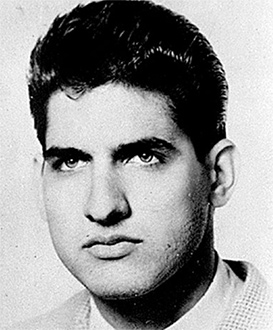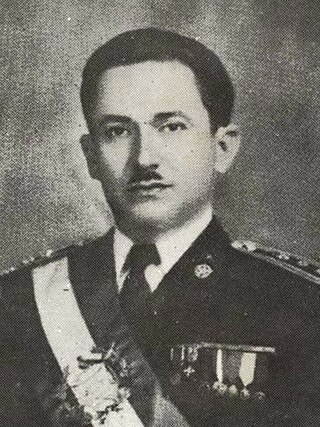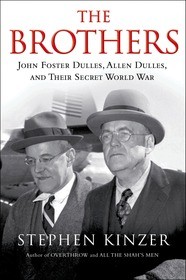
The Organization of American States is an international organization founded on 30 April 1948 to promote cooperation among its member states within the Americas.
CIA cryptonyms are code names or code words used by the U.S. Central Intelligence Agency (CIA) to refer to projects, operations, persons, agencies, etc.

Hugo Spadafora Franco was a Panamanian physician and guerrilla fighter in Guinea-Bissau and Nicaragua. He criticized the military in Panama, which led to his murder by the government of Manuel Noriega in 1985.

The Hay–Bunau-Varilla Treaty was a treaty signed on November 18, 1903, by the United States and Panama, which established the Panama Canal Zone and the subsequent construction of the Panama Canal. It was named after its two primary negotiators, Philippe-Jean Bunau-Varilla, the French diplomatic representative of Panama, and United States Secretary of State John Hay.

The term Latin America originated in the 1830s, primarily through Michel Chevalier, who proposed the region could ally with "Latin Europe" against other European cultures. It primarily refers to the Spanish- and Portuguese-speaking countries in the New World.

Carlos Castillo Armas was a Guatemalan military officer and politician who was the 28th president of Guatemala, serving from 1954 to 1957 after taking power in a coup d'état. A member of the right-wing National Liberation Movement (MLN) party, his authoritarian government was closely allied with the United States.

Stephen Kinzer is an American author, journalist, and academic. A former New York Times correspondent, he has published several books and writes for several newspapers and news agencies.

The 1954 Guatemalan coup d'état deposed the democratically elected Guatemalan President Jacobo Árbenz and marked the end of the Guatemalan Revolution. The coup installed the military dictatorship of Carlos Castillo Armas, the first in a series of U.S.-backed authoritarian rulers in Guatemala. The coup was largely the result of a CIA covert operation code-named PBSuccess.
Operation PBFortune, also known as Operation Fortune, was a covert United States operation to overthrow the democratically elected Guatemalan President Jacobo Árbenz in 1952. The operation was authorized by U.S. President Harry Truman and planned by the Central Intelligence Agency. The United Fruit Company had lobbied intensively for the overthrow because land reform initiated by Árbenz threatened its economic interests. The US also feared that the government of Árbenz was being influenced by communists.

William Nelson Cromwell was an American attorney active in promotion of the Panama Canal and other major ventures especially in cooperation with Philippe Bunau-Varilla.

The Banana Wars were a series of conflicts that consisted of military occupation, police action, and intervention by the United States in Central America and the Caribbean between the end of the Spanish–American War in 1898 and the inception of the Good Neighbor Policy in 1934. The military interventions were primarily carried out by the United States Marine Corps, which also developed a manual, the Small Wars Manual (1921) based on their experiences. On occasion, the United States Navy provided gunfire support and the United States Army also deployed troops.

Bilateral relations between the various countries of Latin America and the United States of America have been multifaceted and complex, at times defined by strong regional cooperation and at others filled with economic and political tension and rivalry. Although relations between the U.S. government and most of Latin America were limited prior to the late 1800s, for most of the past century, the United States has unofficially regarded parts of Latin America as within its sphere of influence, and for much of the Cold War (1947–1991), vied with the Soviet Union. The political context evolved again in the 2000s, with the election in several South American countries of socialist governments. This "pink tide" thus saw the successive elections of Hugo Chávez in Venezuela (1998), Lula in Brazil (2002), Néstor Kirchner in Argentina (2003), Tabaré Vázquez in Uruguay (2004), Evo Morales in Bolivia (2005), Michelle Bachelet in Chile (2006), Daniel Ortega in Nicaragua (2006), Rafael Correa in Ecuador (2006), Fernando Lugo in Paraguay (2008), José Mujica in Uruguay (2009), Ollanta Humala in Peru (2011), Luis Guillermo Solís in Costa Rica (2014), Salvador Sánchez Cerén in El Salvador (2014), and Andrés Manuel López Obrador in Mexico (2018). Although these leaders vary in their policies and attitude towards both Washington, D.C. and neoliberalism, while the states they govern also have different agendas and long-term historic tendencies, which can lead to rivalry and open contempt between themselves, they seem to have agreed on refusing the ALCA and on following a regional integration without the United States' overseeing the process. In particular, Chávez and Morales seem more disposed to ally together, while Kirchner and Lula, who has been criticized by the left-wing in Brazil, including by the Movimento dos Sem Terra (MST) landless peasants movement, are seen as more centered. The state of Bolivia also has seen some friction with Brazil, as well as Chile. Nouriel Roubini, professor of economics at New York University, said in a May 2006 interview: "On one side, you have a number of administrations that are committed to moderate economic reform. On the other, you've had something of a backlash against the Washington Consensus [a set of liberal economic policies that Washington-based institutions urged Latin American countries to follow, including privatization, trade liberalization and fiscal discipline] and some emergence of populist leaders." In the same way, although a leader such as Chávez verbally attacked the George W. Bush administration as much as the latter attacked him, and claimed to be following a democratic socialist Bolivarian Revolution, the geo-political context has changed a lot since the 1970s. Larry Birns, director of the Council on Hemispheric Affairs, thus stated: for influence in the Western Hemisphere.
Operation Charly, was allegedly the code-name given to a program during the 1970s and 1980s undertaken by the junta in Argentina with the objective of providing military and counterinsurgency assistance to right-wing dictatorships and insurgents in Central America. According to Noam Chomsky, the operation was either headed by the Argentine military with the agreement of the United States Department of Defense, or was led by the US and used the Argentinians as a proxy.

The First Spooner Act of 1902 was written by a United States senator from Wisconsin, John Coit Spooner, enacted on June 28, 1902, and signed by President Roosevelt the following day. It authorized purchasing the assets of a French syndicate called the Compagnie Nouvelle du Canal de Panama, provided that a treaty could be negotiated with the Republic of Colombia.
The period in the history of Guatemala between the coups against Jorge Ubico in 1944 and Jacobo Árbenz in 1954 is known locally as the Revolution. It has also been called the Ten Years of Spring, highlighting the peak years of representative democracy in Guatemala from 1944 until the end of the civil war in 1996. It saw the implementation of social, political, and especially agrarian reforms that were influential across Latin America.
Since the 19th century, the United States government has participated and interfered, both overtly and covertly, in the replacement of many foreign governments. In the latter half of the 19th century, the U.S. government initiated actions for regime change mainly in Latin America and the southwest Pacific, including the Spanish–American and Philippine–American wars. At the onset of the 20th century, the United States shaped or installed governments in many countries around the world, including neighbors Hawaii, Panama, Honduras, Nicaragua, Mexico, Haiti, and the Dominican Republic.
Birch Dilworth O'Neal was the CIA station chief in Guatemala in 1953, succeeding Collins Almon. When the CIA began Operation PBSuccess, whose goal was to overthrow Guatemalan president Jacobo Arbenz, O'Neal objected, so director Allen Dulles transferred him out so that the operation could proceed.

The participation of the United States in regime change in Latin America involved US-backed coup d'états which were aimed at replacing left-wing leaders with right-wing leaders, military juntas, or authoritarian regimes. Intervention of an economic and military variety was prevalent during the Cold War. Although originally in line with the Truman Doctrine of containment, United States involvement in regime change increased following the drafting of NSC 68, which advocated more aggressive actions against potential Soviet allies.

The Brothers: John Foster Dulles, Allen Dulles, and Their Secret World War is a 2013 book by the New York Times journalist and historian, Stephen Kinzer. It has been described as "a riveting chronicle of government-sanctioned murder, casual elimination of “inconvenient” regimes, relentless prioritization of American corporate interests and cynical arrogance on the part of two men who were once among the most powerful in the world." Kinzer traces how the activity of Dulles brothers "helped set off some of the world's most profound long-term crises." It is based on secondary sources.













